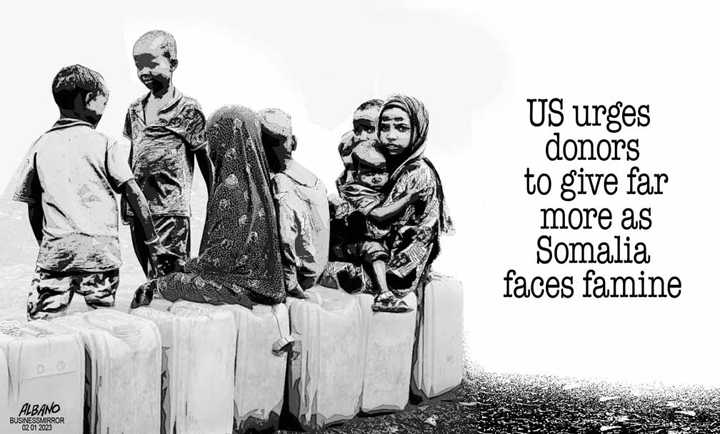The energy crisis that struck South Africa, which is threatening food and water supplies, has already adversely affected their agriculture sector. Bloomberg reported that blackouts have created problems at every step of the agricultural production (See, “An energy crisis is seeping into South Africa’s food supply,” in the BusinessMirror, January 18, 2023). Power outages forced poultry factories to pause round-the-clock operations for as long as half a day, delaying the slaughter of birds and increasing the production cost of companies as the chickens continue to consume feed.
South African farmers cannot irrigate their crops, and stores and food retailers shelled out more money to keep their produce from spoiling. Those who have the means have purchased generators and spent for diesel to keep electricity running for hours. The energy crisis also affected other sectors, including tourism.
South Africa’s experience should serve as a warning to the Philippines, where the power supply situation is causing anxiety among policymakers and industry stakeholders. For one, Energy Secretary Raphael Lotilla said the country needs additional power supply and reserves during the hot dry season when demand will be at its peak. Lotilla also warned lawmakers about the possibility of several yellow alerts and possible red alerts that await the Luzon grid this year (See, “Bleak, challenging energy sector outlook seen in ’23,” in the BusinessMirror, January 9, 2023).
The grid operator issues a red alert status when power supply is insufficient to meet consumer demand and the transmission grid’s regulating requirement, while a “yellow alert” means insufficient operating power reserve. Based on an initial assessment of the country’s power supply and demand for this year, the National Grid Corporation of the Philippines is seen issuing 17 yellow alerts and three red alerts in 2023. The Institute for Climate and Sustainable Cities said it does not foresee much improvement in the supply from both coal and fossil gas power plants this year.
While areas connected to the main grid are not yet experiencing power outages, off-grid areas have already been hit by brownouts as the National Power Corp. struggles to meet its financial obligations amid the spike in fuel prices. These off-grid areas have farmlands that require irrigation and have small businesses that cater to tourists. Skyrocketing fuel prices have prompted the NPC to seek a higher budget for this year so it could continue delivering electricity to these areas.
Blackouts would affect not only households, but also factories and farms that rely on electricity to power machines, mills and irrigation systems. The country’s economic recovery is a welcome development, as this would mean more jobs and higher incomes. However, the economic gains could be dented by higher food prices caused by disruptions, such as power outages and more expensive electricity.
Concerned government agencies as well as the private sector are now looking at measures to prevent power outages. The hot dry season—when rice, onions and mangoes are harvested and people usually visit beaches and other local tourist spots—is just around the corner.
It would do well for concerned state agencies to inform the people what measures are being done to minimize if not totally avoid power outages. The people need government reassurance so that they can stop worrying about brownouts during the hot summer months.































